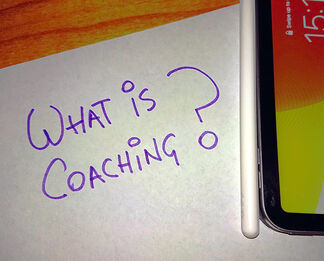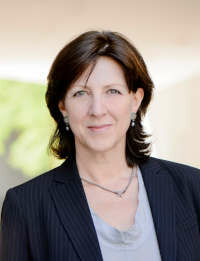What is coaching and who benefits from it?
The coaching industry is still unregulated which means that the job title coach is not protected and anyone can call themselves coach. The term 'coach' is also widely used generically by non-coaches such as consultants who give people professional advice, by HR specialists who talk about performance management, mentors who support their clients with their expertise in a particular field or industry, trainers and even teachers – all of these people can call themselves coach.
Also from the client side there is confusion about what topics are coaching topics and for which topics it may be better to seek out a mental health practitioner . This leads to widespread confusion. So what specifically does a coach do? What is coaching? And who benefits from coaching?
So how would you explain what coaching is to a potential client?
Because of the above confusion it is really important to clarify your client's expectations about what coaching is and about your offer from the beginning. To do this it is helpful to explore your own definition of coaching, as well as thinking about how coaching compares with the other interventions mentioned above and then consider how these compare with the following formal definitions:
Practitioner Definition by the International Coaching Federation (ICF):
Coaching is “partnering with clients in a thought-provoking and creative process that inspires them to maximize their personal and professional potential.”
Practical Definition by Sir John Whitmore (1992), a leading figure in the field of coaching:
Coaching is“unlocking a person’s potential to maximise their own performance. It is helping them to learn rather than teaching them”.
An Academic definition by Passmore & Fillery-Travis (2011):
Coaching is “a Socratic based future focused dialogue between a facilitator (coach) and a student (coachee/client), where the facilitator uses open questions, active listening, summarises and reflections which are aimed at stimulating the self-awareness and personal responsibility of the student”
Who benefits from coaching?
Anyone and everyone can benefit from coaching. Long gone are the days when coaching was considered a corrective intervention for problem employees, indeed many people from all walks of life and business are discovering the value of the coaching approach for finding more fulfilment and ways to flourish in their lives and work.
A coaching session is time for you – you and your topic are totally in focus throughout and you are in charge of what happens and how much you share in this confidential, psychologically safe space.
The coach helps you to increase your awareness and see your topic in new ways, facilitating you in your best thinking. Interestingly, although the coachee is the main beneficiary of coaching, also family, friends and/or colleagues are often influenced by the change in the coachee's mindset.
Sign up for a Henley Webinar on What is Coaching?
If you would like to continue the discussion and learn more about the difference between coaching, mental health counselling, mentoring, consulting, performance management and training, then check our events page to register for one of the next Henley webinars on "What is Coaching"?


